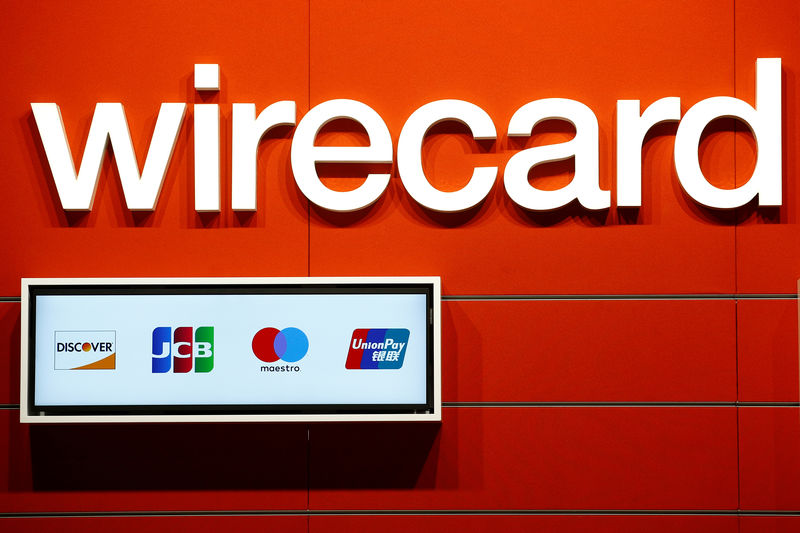This post was originally published on this site
https://i-invdn-com.akamaized.net/news/LYNXNPEF0U0MU_M.jpg
Investing.com — The governance scandal at one of Europe’s most popular tech stocks took a dramatic turn for the worse on Thursday, as German payments company Wirecard (DE:WDIG) was forced for a third time to delay the publication of its 2019 accounts on suspicion of fraud.
In a statement to the Frankfurt Stock Exchange, Wirecard said its auditors Ernst & Young had failed to find “sufficient audit evidence” for around 1.9 billion euros ($2.2 billion) in revenue for the year – around one quarter of the revenue the company was set to report.
Wirecard stock fell as much as 65% to a three-year low on the news, which leaves the company all-but unable to meet a crucial deadline. Lenders will be able to call in effectively all of the group’s 2 billion euros in debt if the accounts aren’t published by tomorrow. The stock rebounded modestly to trade down 50% by 5:30 AM ET (0930 GMT). The benchmark DAX rose 0.2%.
“There are indications that spurious balance confirmations had been provided from the side of the trustee respectively of the trustee’s account holding banks to the auditor in order to deceive the auditor and create a wrong perception of the existence of such cash balances or the holding of the accounts for to the benefit of Wirecard group companies,” the company said, adding that it is “working intensively together with the auditor towards a clarification of the situation.”
According to Wirecard’s last quarterly statements, the company had 3.8 billion euros of cash and short-term investments and long-term debt of 1.7 billion.
The long-running allegations, which have accompanied Wirecard in one form or another for much of the last 10 years, have become a litmus test for the state of corporate governance and investor protection in Germany. The saga has pitted a loyal band of mainly domestic retail investors against largely U.K.-based short-sellers in an increasingly intense struggle. As of this week, some 28 million shares – over 22% of the outstanding total – were shorted.
The company had initially enjoyed the support of the German financial establishment, notably from regulator Bafin. Bafin had sympathized with the company’s complaints that it was being unfairly targeted by price-manipulating short-sellers, with the help of the Financial Times (the FT has always said it stands by its reporting).
But the tide appeared to be turning against it earlier this month when a criminal complaint filed by Bafin led to a police search of the company’s headquarters outside Munich.
That complaint referred to statements made by Wirecard’s management ahead of the publication of a special audit by KPMG in April. Management put an aggressively positive and selective spin on a report whose main conclusion was that certain sales over three years had been impossible to verify.
In addition to its legal problems in Germany, the company is being sued in London by investors in a company acquired by Wirecard in 2015, and faces a separate criminal investigation in Singapore.

